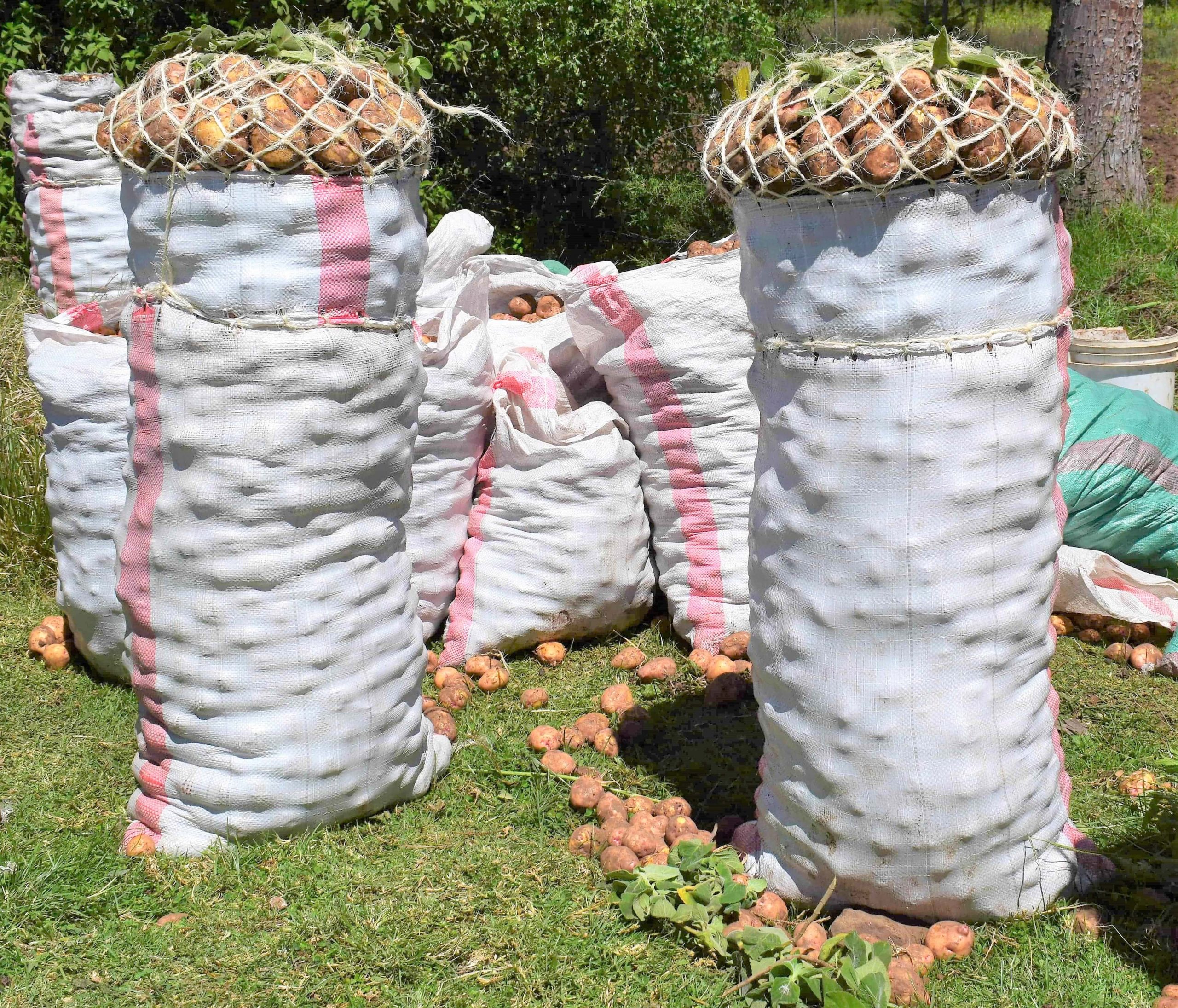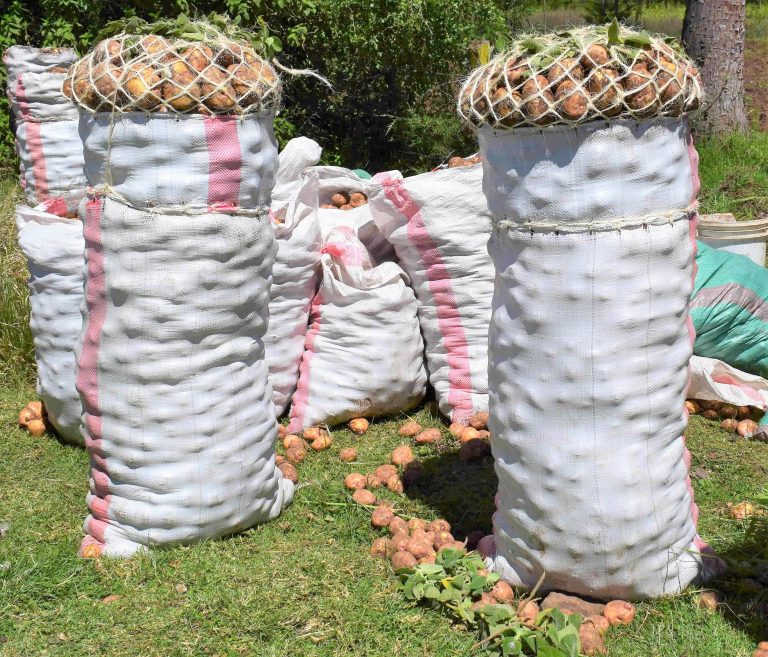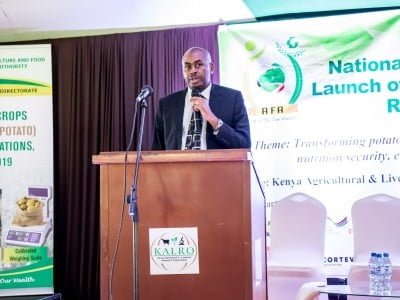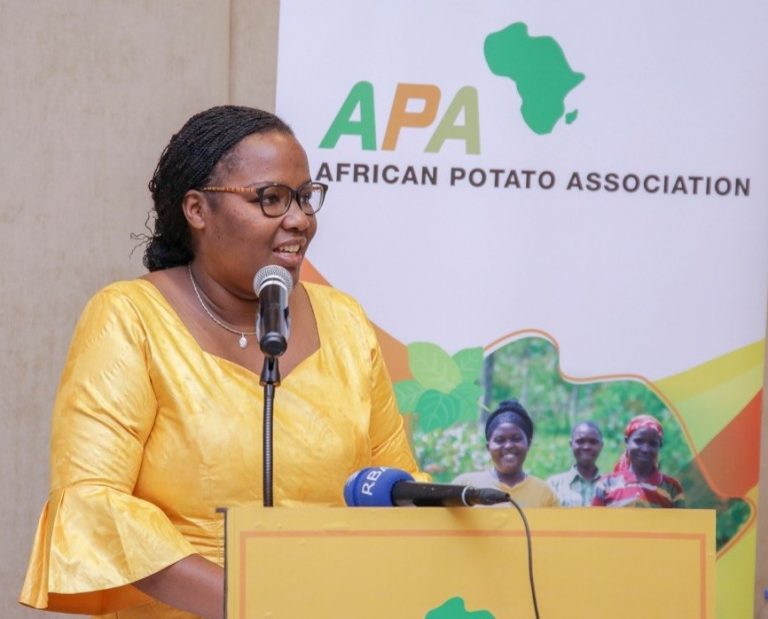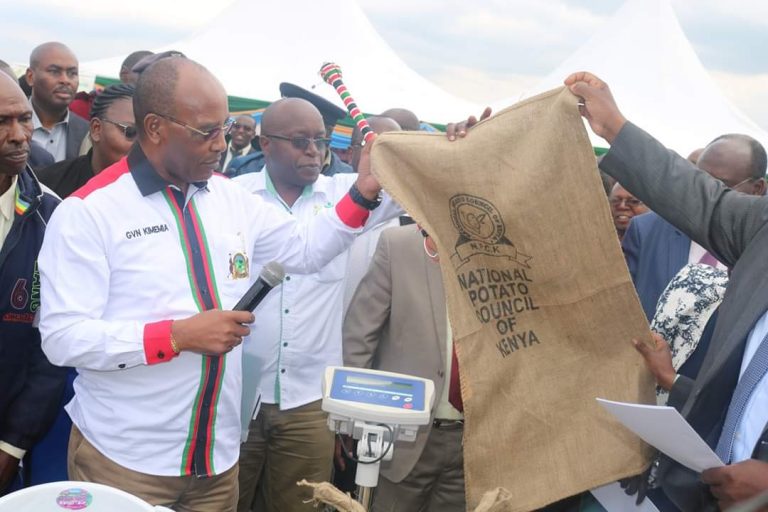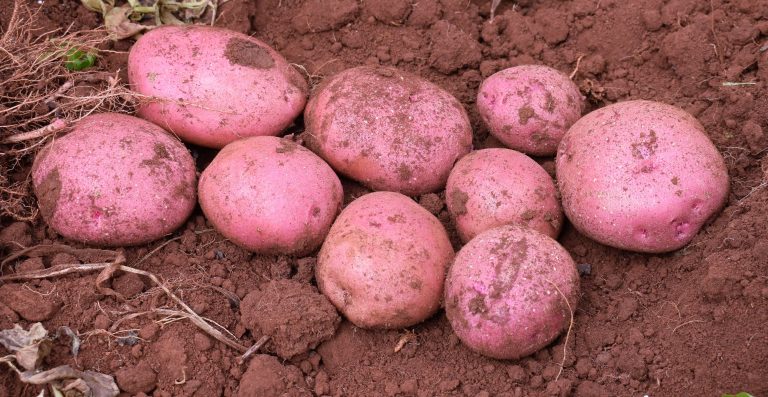The government has reaffirmed its commitment to fully implement the Irish Potato Regulations 2019, which require that all Irish potatoes be packaged in standard 50-kilogram bags. The directive aims to curb the exploitation of farmers by unscrupulous brokers and standardise practices across the potato value chain.
Agriculture Principal Secretary Dr Paul Ronoh said the enforcement of the regulations is designed to protect farmers from predatory middlemen who force them to pack their produce in oversized bags, only to resell it for a hefty profit. Speaking in Nyota Ward, Kuresoi North Sub-County, Dr Ronoh highlighted the government’s resolve to uphold the law.
“We are particularly keen on implementing the 50kg rule to ensure unscrupulous brokers don’t continue exploiting farmers by continued use of the excessive packaging techniques famously called Dusura,” he stated. “Previously, potato packaging had no definite weight, thereby exposing farmers to exploitation and blackmail from unscrupulous dealers.”
Individuals who flout the regulations risk prosecution, a fine of up to KShs 500,000, or imprisonment for a term of one year.
The 2019 regulations stipulate that growers and dealers must use weighing scales that are calibrated, inspected, and approved by the Ministry responsible for trade. The rules seek to end the widespread use of extended bags, which typically carry between 100 to 180 kilograms but are sold at prices close to those of 50kg bags, significantly short-changing farmers.
“Strict adherence to these regulations is crucial for empowering farmers and ensuring they receive fair returns for their labour,” said Dr Ronoh. “Brokers are the major obstacle to adherence to the law, as they ask farmers not to package the farm produce as required. We will safeguard both farmers and traders.”
The PS noted that proper enforcement of the packaging rules could help farmers recover up to 50 per cent of revenue currently lost due to inefficient and exploitative packaging practices.
To further support potato farmers, Dr Ronoh announced plans to construct a cold storage facility in Kuresoi North Sub-County, which is expected to significantly reduce post-harvest losses.
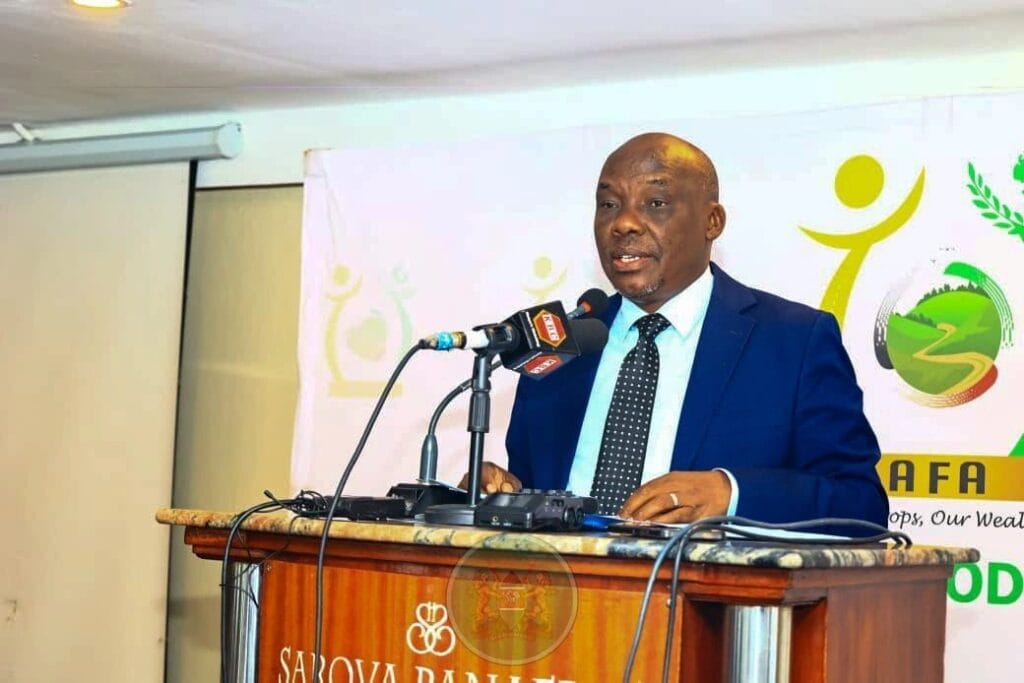
Nakuru is Kenya’s second-largest potato-producing county, accounting for 18.9 per cent of the national output. Nyandarua leads with 29.8 per cent, followed by Elgeyo Marakwet at 16.2 per cent. Other major potato-producing regions include Makueni, Embu, Tharaka Nithi, Samburu, Kajiado, and Kwale.
In Nakuru alone, approximately 20,000 farmers grow potatoes on over 38,000 acres, yielding an estimated 160,000 tonnes annually, with the Shangi variety being the most dominant.
Despite the existence of the packaging law, enforcement by county governments has been inconsistent, allowing brokers to continue flouting the rules.
“It is the same story in the entire region: exploitation, huge investments and losses by the farmers but huge profits raked in by middlemen who control the markets,” said Samuel Kihiu, a potato farmer in Kuresoi North.
Dr Ronoh affirmed that the national government will collaborate with county administrations to ensure the full implementation of the regulations.
To facilitate enforcement, the Agriculture and Food Authority (AFA) has trained over 300 crop inspectors to monitor compliance with the Crops Act, which prohibits packaging Irish potatoes in extended bags.
“Key in the implementation process is to ensure packaging in the required standard of 50 kilograms,” said AFA Director General Dr Bruno Linyiru. “The enforcement will be executed in the entire value chain from the farm to the markets.”
He added that stakeholders across the value chain have been sensitized and are expected to comply, noting that previously, potatoes were often packed in bags weighing up to 110 kilograms, leading to massive farmer losses.
Standardization efforts date back to 2005, when the government introduced a policy to regulate packaging, followed by Legal Notice No. 113 of 2008. The bylaws, passed by defunct municipal and county councils, stipulated a KShs 2,000 fine or a jail term of up to six months for offenders. Market officials were also instructed to prevent the sale of produce packaged in extended bags.
Dr Linyiru said enforcement officers will monitor the production, handling, weighing, processing, and transportation of Irish potatoes to ensure compliance.
“The enforcement officers are expected to ensure farmers, vendors, and transporters adhere to the 50-kilogram packaging rule,” he stated. “They are required to work within the law and with due diligence to help restore sanity in the industry.

Historically, brokers have relied on general pricing for oversized bags without considering weight, a practice that has significantly diminished farmer earnings. In Nakuru, potatoes are grown in agriculturally rich areas including Molo, Subukia, Kuresoi South, Kuresoi North, Mau Narok, and Njoro.
Under the Irish Potato Regulations 2019, inspectors in potato-growing counties are authorized to seize and detain non-compliant potato consignments at the offender’s cost.
According to the National Potato Council of Kenya (NPCK), Nakuru has about 200,000 potato farmers cultivating over 38,000 acres, producing roughly 160,000 tonnes of the crop annually.
Nationally, over 800,000 farmers are engaged in potato cultivation, with total production ranging between 1 million and 1.4 million tonnes, valued between KShs 30 billion and KShs 40 billion annually. Smallholder farmers account for 83 per cent of the production.
NPCK estimates that the potato sector, worth about KShs 50 billion, directly and indirectly supports 3.8 million Kenyans.


